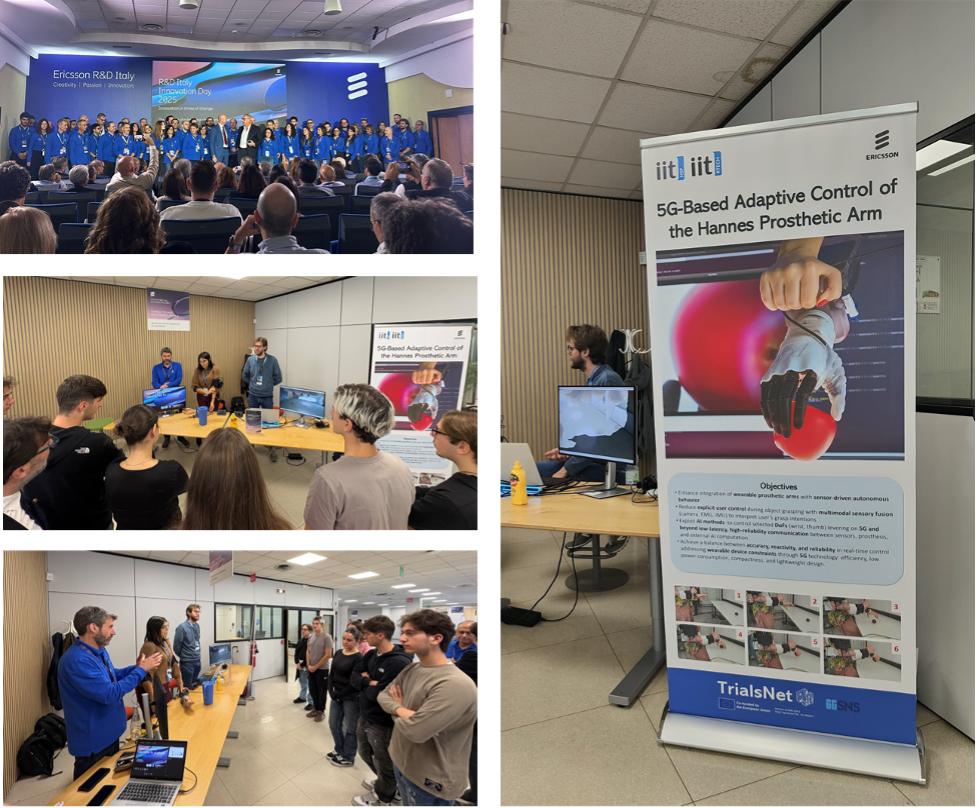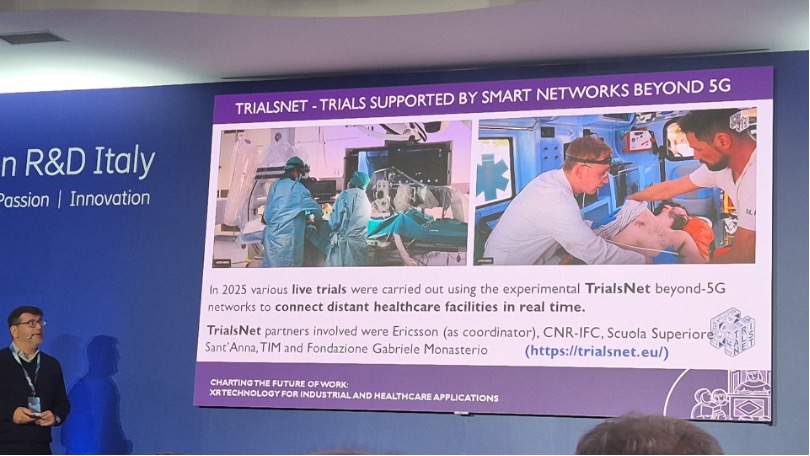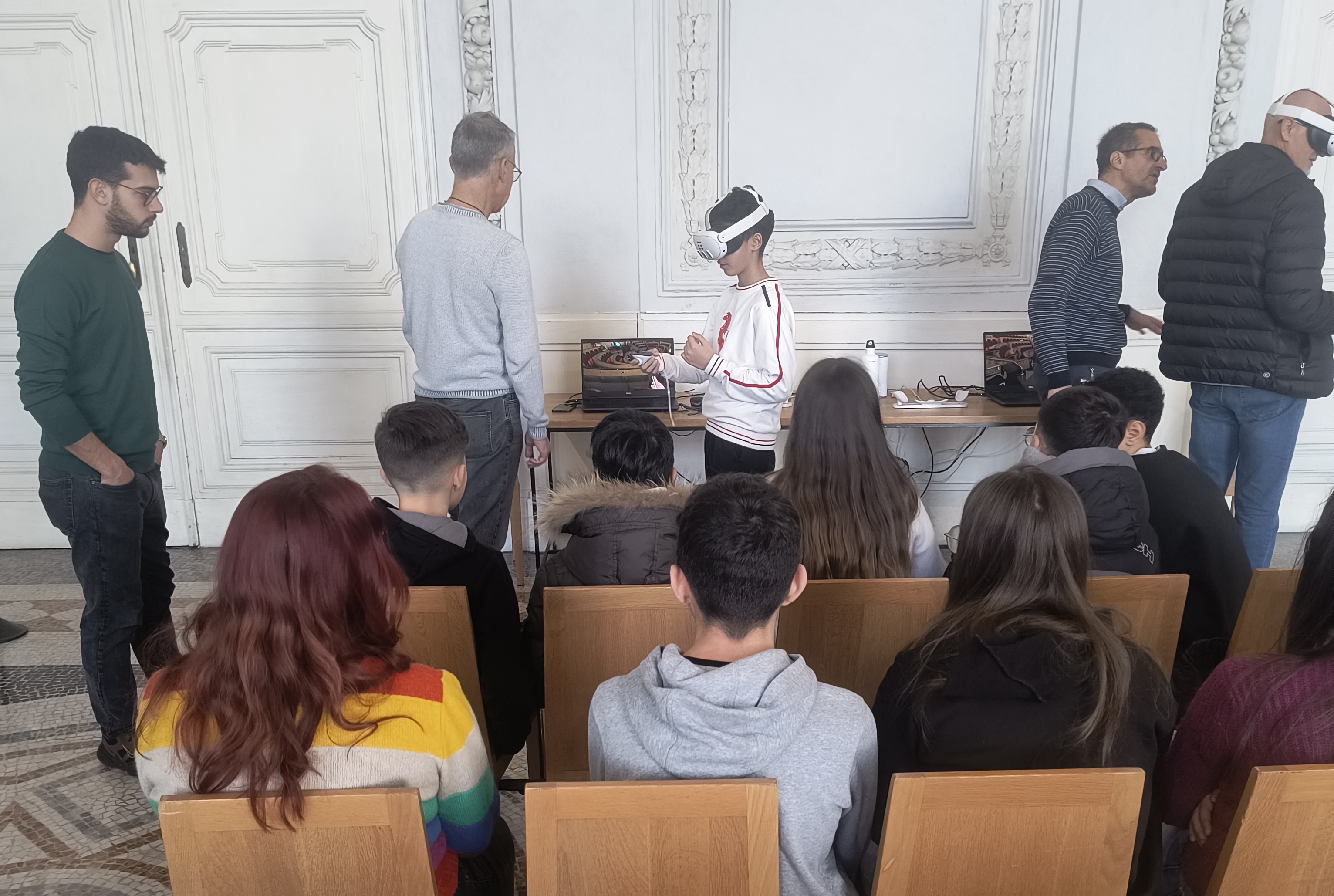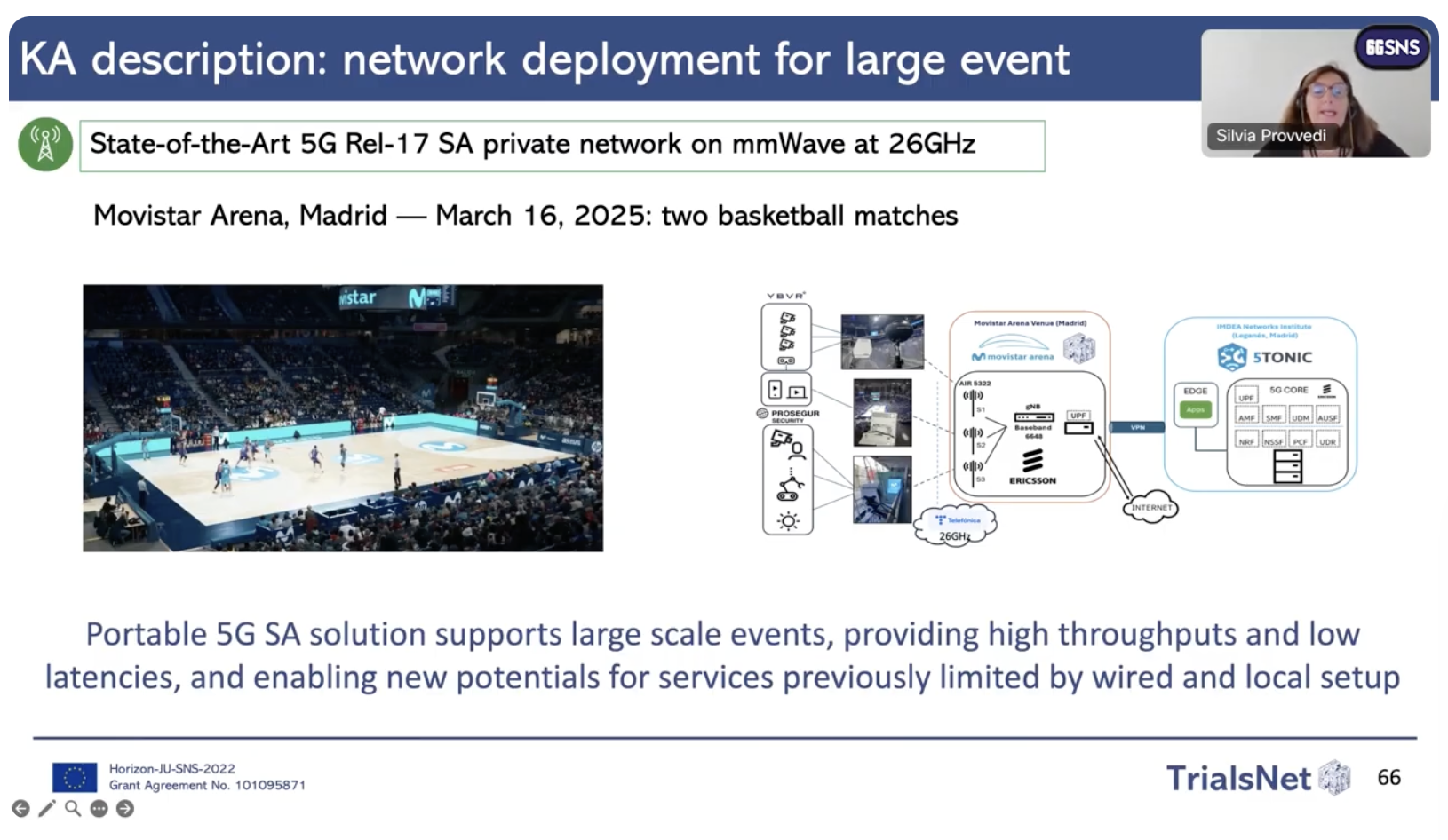TrialsNet at Ericsson Innovation Day
TrialsNet innovations at Ericsson R&D Italy’s Innovation Day 2025
The Ericsson R&D Italy Innovation Day is a yearly corporate event that highlights Italian research and development, focusing on the future of mobile communications, including 5G and 6G technologies. The 14th edition of the event, held on October 14th/15th, 2025 at the Ericsson R&D center in Pagani, showcased innovation in areas such as intelligent connectivity, cognitive networks, and reliable systems. This year’s event also celebrated the achievement of over 1,000 patents from Italian researchers.
The event drew significant attention, attracting representatives from local institutions, universities, telecommunications operators, and students from local technical and scientific high schools. Also in attendance was local and international management from Ericsson, who witnessed a demonstration so impactful it was selected for a live stream across the entire company.
Ericsson and IIT Showcase Groundbreaking 5G-Powered AI Prosthesis
In a dedicated exhibit, Ericsson and the Italian Institute of Technology (IIT) presented the TrialsNet project, showcasing a prosthetic hand that leverages the power of 5G and Artificial Intelligence to offer users a more intuitive and seamless experience.

The core of the prosthesis demonstration was to illustrate how mobile communication technology can enable a prosthesis to perform complex tasks without being weighed down by heavy onboard computers. By offloading the intensive AI algorithm processing to high-performance remote servers via a 5G connection, the prosthesis remains lightweight and energy efficient. This innovative approach eliminates the need for cumbersome cables or additional components, freeing the wearer from physical constraints.
Visitors saw the prosthesis in action, utilizing object segmentation and advanced AI algorithms developed in the Ericsson and IIT labs in Genoa. Thanks to these technologies, the hand can autonomously adapt its movement and grip as it approaches an object. This intelligent function was tested in trials in Pisa (UC9).
A key takeaway from the presentation was the result of the final experimentation phase. A group of trial participants reported an equivalent user experience whether the prosthesis was connected to the server via a traditional cable or a wireless 5G connection. This crucial finding validates the feasibility and effectiveness of using 5G for real-time, critical applications like assistive robotics.
The success of the demonstration was mainly due to the on-site presence and passion of Giancarlo Sacco from Ericsson and Carmela Calabrese and Francesco Brand from the Italian Institute of Technology (IIT).
Charting the Future of Work with XR
Another important voice from the TrialsNet Project, Professor Franco Tecchia of the Scuola Superiore Sant’Anna, gave an insightful presentation on the topic “Charting the Future of Work: XR Technology for Industrial and Healthcare Applications” during the “Disruptive Testimonies” plenary session of the event. His talk highlighted how XR technologies are redefining collaboration not only in industrial maintenance but also in healthcare. He illustrated real-world applications where surgeons and medical experts can share the same field of view through smart glasses, enabling remote proctoring, mentoring, and second opinions in real time. This transformation, Tecchia explained, is already improving learning outcomes and clinical decision-making, as confirmed by recent academic studies. The XR technologies he presented to a large and attentive audience were central to the two use cases developed in the Pisa cluster of TrialsNet: Remote Proctoring (UC7) and the Smart Ambulance (UC8).
Tecchia concluded by emphasizing the ongoing shift from isolated devices to connected ecosystems, where edge and cloud computing provide the intelligence that makes extended reality scalable and reliable for mission-critical scenarios such as emergency response and smart healthcare. His contribution underscored how XR, when supported by secure and high-performance networks, becomes a true enabler of human capability in healthcare.

Conclusion The contribution of TrialsNet to the Ericsson event was extremely appreciated as the theme of “mission-critical” services is of growing importance as networks evolve towards 6G. Operators see the provision of differentiated connectivity, including mission-critical applications, as a key opportunity for network monetization.



